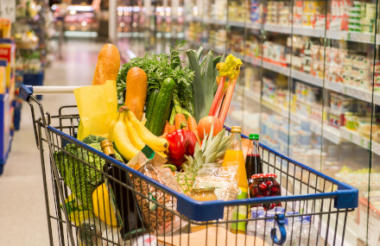The new centre of your local community
The role of the supermarket has changed in recent years - particularly during the Covid-19 pandemic. A friend of mine, who is a Catholic Bishop, recently told me that he now goes to the local supermarket each week solely to have human contact.
Our local supermarkets have become community hubs. Many of them house a food bank, information on community services, a pharmacy providing access to health advice, or even a vaccine centre. Now, in their role at the centre of communities, supermarkets want to have a positive impact. Almost every supermarket now has clearly defined environmental, social and governance (ESG) goals.
With this new role comes new expectations, from consumers and governments alike. Retail Week’s recent survey of 10,000 European shoppers found that 75% of them want to be sure that the retailer they choose to shop with considers the environment in its actions. And the United Nations’ Sustainable Development Goals (SDGs) form a universal call to action to end poverty, protect the planet, and ensure that by 2030 all people enjoy peace and prosperity.
Supermarkets need support. Gone are the days of charities merely relying on supermarkets for donations. Today, charities can be their partners. They can help supermarkets to meet their ESG goals – and in doing so, benefit from the huge reach and influence that supermarkets have to boost their own message and create an even greater impact.
A partnership that benefits both communities and the environment
There are already some excellent examples of charities and supermarkets working together to benefit their communities.
Take Asda’s relationship with FareShare. Since 2013, the two have partnered to ensure surplus food benefits charities and community projects across the UK. FareShare’s work with Asda offers a simple and practical way for Asda to turn what could be an environmental problem into a real benefit for communities.
tcc’s own work with Price Chopper in the US is another good example – using loyalty schemes to offer shoppers the chance to redeem points, make a charitable donation, or pay off their student loans. There’s even an opportunity for charities to take this a step further, such as working with grocers to offer debt advice or other charitable support to consumers.
In this way, charities and grocers can work together to create social and environmental impact through their rewards schemes. By tying rewards into ESG goals, supermarkets can reach their targets far easier and create positive change in their communities.
But to do this, supermarkets need to foster relationships with their community and supply partners. As we all know, charities are experts in fostering relationships. If charities can go to the private sector and offer their expertise, then they in turn will benefit from the fantastic reach of these brands.
Bridging the gap between charities and local supermarkets
Right now, ESG goals and charity goals mostly sit separate. The gap between the two needs to be bridged to best meet the ambitions set out by the United Nations in its SDGs. At tcc, we know how to enable the relationship between a charity and a supermarket to create meaningful campaigns that resonate with consumers and boost the profiles of both parties.
Consumers’ good intentions are growing stronger every day – and they look to their supermarkets to help them make a difference. If charities can offer their help to supermarkets in meeting their ESG goals, then they can reach a far larger audience and have a far greater impact on communities. For supermarkets, there is a fantastic opportunity to respect the expertise of charities and make use of their extensive skills and experience in creating positive impacts. It’s a partnership that will benefit everyone.
Sarah Lindsell is director of social impact & tcc Foundation at tcc global
Related articles












